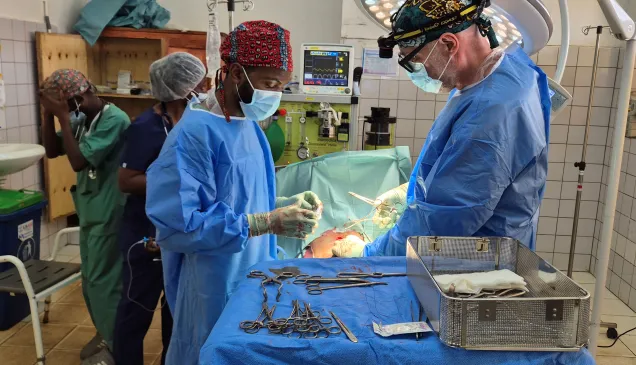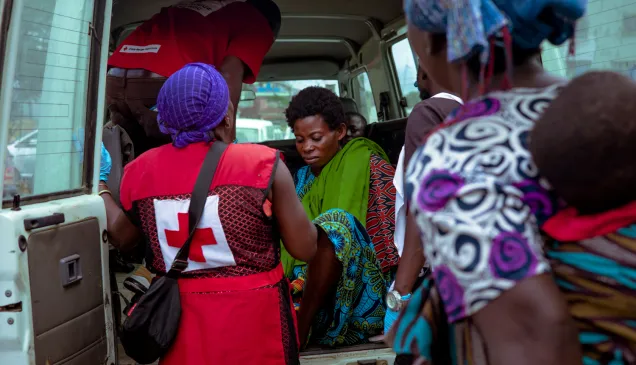Democratic Republic of the Congo: Water pressure
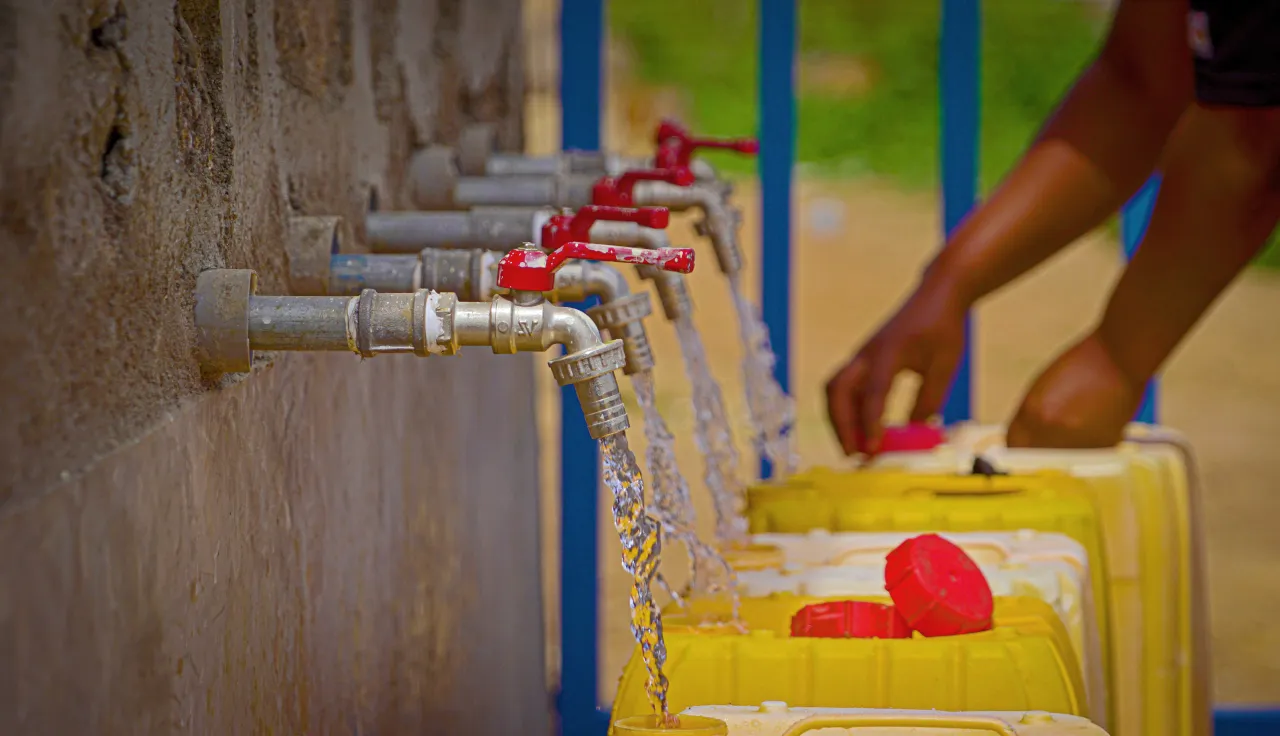
People fleeing the violence in North Kivu Province often end up on the outskirts of the town of Beni. But as the population grows, water is becoming scarce.
Since 2014, the violence committed by armed groups has forced thousands of people to abandon their villages in search of somewhere safer. According to the authorities, nearly 34,000 displaced families were living in the town of Beni in January 2022, principally in the districts of Kasabinyole and Mambango, and often in makeshift houses made of earth or wooden planks.
Water and sexual violence
In such conditions, getting enough water to meet everyone's needs is a real headache. Whether it's to drink, cook or do the housework, women and girls draw water from wells or even streams.
And for the women and young girls who have to fetch the water, it can be a dangerous chore. "Some women who went to fetch water and came home late were raped. The district head has advised us all always to get home before sundown, but it's not that easy," says Mariella Kakurusi, a Mambango resident.
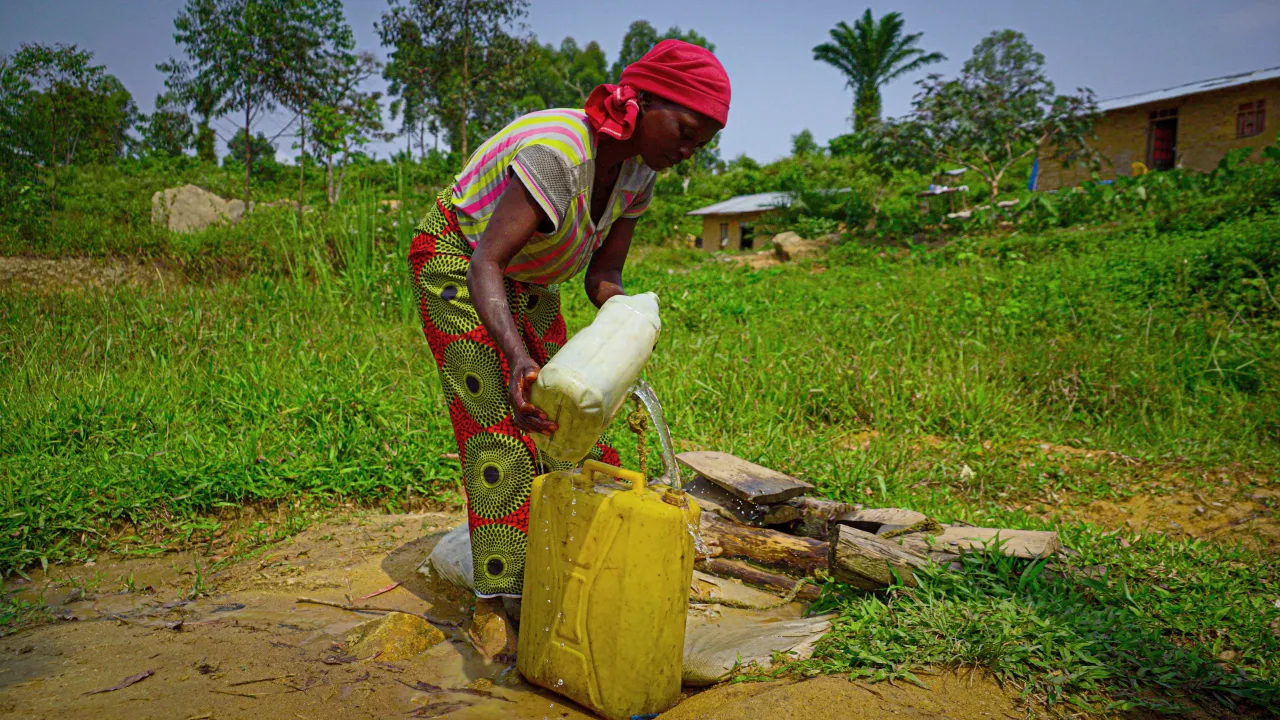
Water may be collected from streams or unsafe points. Waterborne diseases are common.
Kneeling by a thin stream that cuts across Mambango, a group of women are doing the dishes. A few metres away, small boys are playing in the stream, stirring up the bottom and muddying the already murky water. But no one is complaining. They don't have any other choice.
"The water we use is not good for our health. It gives the children scabies," says Jeanne Kahindo, a displaced person now living in the area.
Tensions around water sources
During the dry season, crowds form around the few wells that still draw water. As the wait drags on, the atmosphere grows tense.
"I sometimes have to go two kilometres away to get water. I leave early in the morning so I can add my jerrycans to the queue. They won't be full until nine o'clock in the evening when it's my turn," says Kahambu Mwimbira, a mother of seven children and a Mambango resident.
"Water is often a cause of tension between the host communities and displaced families, as the available sources can't meet the growth in demand."
Tandjama Adama Coulibaly, head of the ICRC's office in Beni
But help is at hand. The ICRC is working with the authorities to provide drinking water for as many people as possible, which should calm tensions between communities and reduce the number of waterborne diseases.
Repairs have improved things ...
Laid more than 20 years ago, the public network of water pipes are old, rusty and leaking. Because of the leaks, the water pressure is too low to produce enough water for host and displaced families living under the same roof. The quality has also considerably deteriorated.
Families who recently moved to neighbourhoods on the outskirts of town cannot use the water-supply network because – despite the town's burgeoning growth – there was no funding available to extended it to reach them.
In 2021, after three months of repairs funded by the ICRC, part of Beni's population had better access to drinking water.
REGIDESO, the water utility in Beni, added seven public drinking fountains to its network, each fountain fitted with ten taps and connected to newly laid pipes and a tank that can hold up to seven cubic metres of water. Five were installed in Mambango and two in Kasabinyole. Four kilometres of rusted pipes were replaced, and three and a half kilometres of new pipes were laid to extend the town's network.
"The dry season is almost upon us, so getting a drinking fountain installed near me couldn't have come at a better time! It took just a few minutes to fill my seven 20-litre jerrycans!" says Mariella.
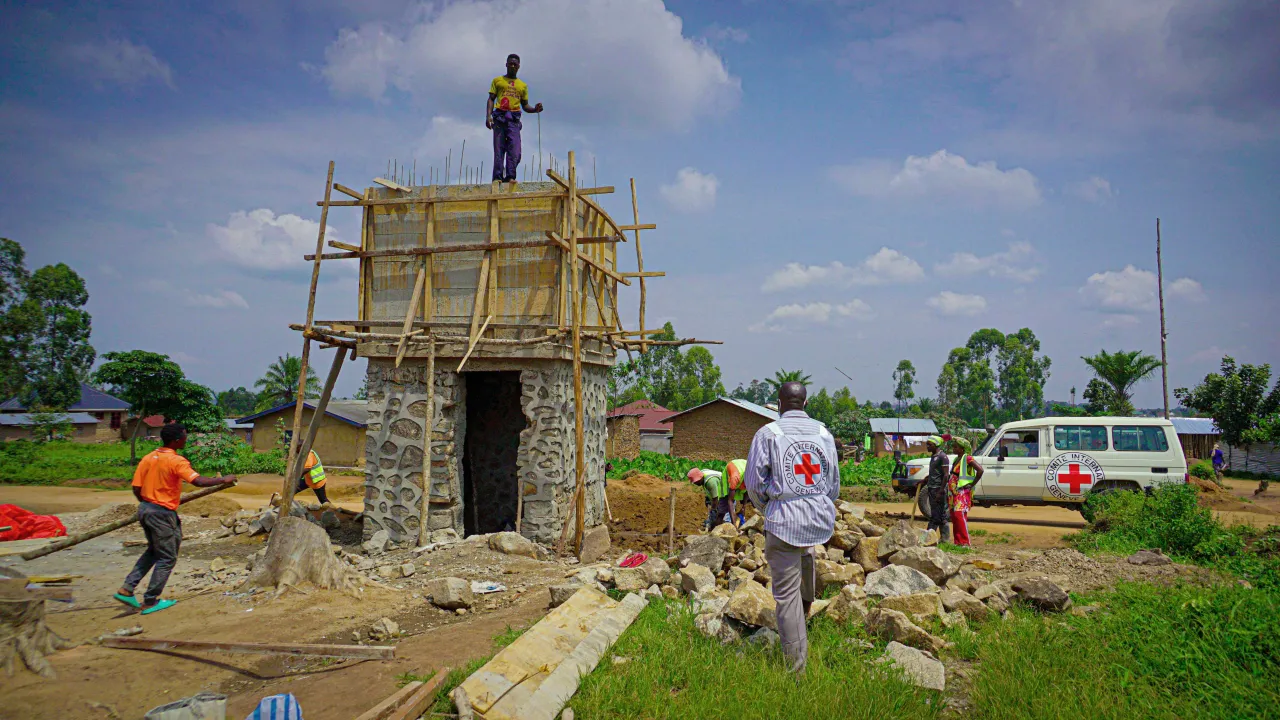
An ICRC engineer supervises the construction of a fountain in an outlying area of the town of Beni.
... but there is still a whole network to upgrade
The drinking fountains provide water for only a few hours a day. REGIDESO is all too aware that much more still needs to be done.
There are an estimated 600,000 people in Beni, of which around 15 per cent are displaced people. "Even with the ICRC's support, we can meet only 20 per cent of the demand for drinking water in Beni," says Jules Meny, head of REGIDESO in Beni.
The ICRC has provided the utility with equipment to maintain the network. A committee made up of members of the community and local Red Cross volunteers has also been set up. Its task is to raise local people's awareness of how to properly use and maintain the water-supply points.
The statistics of violence
Attacks by armed groups have multiplied around Beni. According to the United Nations Office for the Coordination of Humanitarian Affairs, at least 256 people have been killed in 40 attacks between December 2021 and mid-March 2022. Around 200 civilians have been abducted and more than 250,000 people have fled in search of safety in other parts of North Kivu; around 30,000 more have fled to Uganda. Having left everything they owned behind them, the majority of displaced people have been plunged into poverty and are trying to rebuild their lives where they have sought shelter.
Over the course of 2021, the ICRC provided assistance to 15,606 people who had been displaced, had returned to where they came from or were members of host families across the area of Beni. Financial aid was given to cover essential items and seed.
More than 394 people wounded in the violence received medical treatment in 2021 and the first three months of 2022 at Beni General Hospital or in other health-care centres funded by the ICRC.

